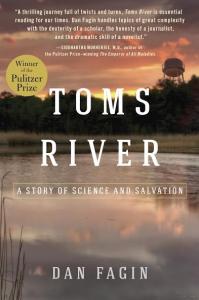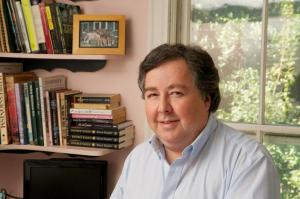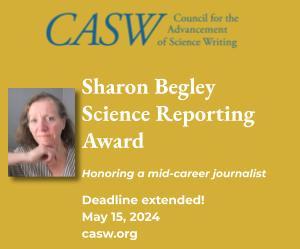By Lynne Friedmann
Life can be hectic for an award-winner writer. Ask Dan Fagin, whose book Toms River: A Story of Science and Salvation (Bantam Books) was honored in a doubleheader on May 28. First, came presentation of the Pulitzer Prize for General Nonfiction, at a luncheon at Columbia University. This was followed that evening by receipt of the New York Public Library’s 2014 Helen Bernstein Book Award for Excellence in Journalism.
Returning home late that night Fagin realized that amid the hubbub of the ceremony, the crush of congratulatory hugs, and dashing to the next award venue he had left the Tiffany box containing his engraved Pulitzer Prize crystal paperweight on the floor under the luncheon banquet table.
An email to Columbia the next morning was answered with the reassuring news that the box and its contents had been found.
“People ask if I freaked out,” said Fagin. “Honestly, no.”
That demeanor says a lot about Fagin and how he is keeping the success of Toms River in perspective.
“I’m obviously very thrilled this happened but I don’t harbor any illusions that it means my book was particularly extraordinary,” he said. “I’m not being falsely modest. I think I wrote a good book and after that luck took over.”
The Pulitzer committee cited Toms River as deftly combining investigative reporting and historical research to probe a New Jersey seashore town’s cluster of childhood cancers linked to water and air pollution.
“The Pulitzer is one of the few things that happen in our business that people outside of our business understand and recognize,” he said. “Now, I’m trying to figure out how best to use this recognition in my own work, my students’ work, and for science and environmental writing.”
Fagin is the director of the Science, Health, and Environmental Reporting Program (SHERP) at New York University. Before joining the NYU faculty in 2005, he was the environmental writer at Newsday for 15 years. It was while at Newsday that Fagin first heard about the plight of Toms River.
“I went down there, wrote a story or two and thought this is an amazing story — good science, compelling characters, and a rich history that resonates,” he said. “But, there were things I felt I couldn’t do in the form of a newspaper story. When I came to NYU, I began looking for a book topic and I immediately thought of Toms River.”
The inclusion of “science” and “salvation” in the book’s subtitle represents a compromise between author and publisher.
“I wanted very much for the world to know it was a book about science. And, the publisher pushed for the word ‘salvation’ because it signals, accurately, that it is a very human story and these people left their town a cleaner, safer place than it was before.”
Fagin began his reporting for the book in 2006 and resolved to “go big” by weaving historical vignettes and contemporary research into the saga.
“I knew it would take a long time and it took much longer,” he said.
Fagin conducted 200 interviews plus did extensive historical research, made numerous FOIA requests, pored through hundreds of studies, and waited for current events to play themselves out — all while working full-time at NYU. Then came the writing.
“I do think that one way to get vital, evidence-based information into a story is to put it in narrative form. It’s not the only way and sometimes narrative is overused,” Fagin said. “But narrative can be a powerful way to bring science to large audiences.”
“Obviously, that’s not brilliant insight,” he continued. “People have been doing this for a long time. I’m hoping that recognition of this book will spur lots of people within NASW to keep trying.”
Fagin is eager to start another book project.
“I don’t write books explicitly because I want to sell a lot of books but I pick topics I want people to hear about,” he said. “But I do think I will switch out of Microsoft Word and use one of the new book-writing software package.”
Lynne Friedmann is editor of ScienceWriters.


.png)

